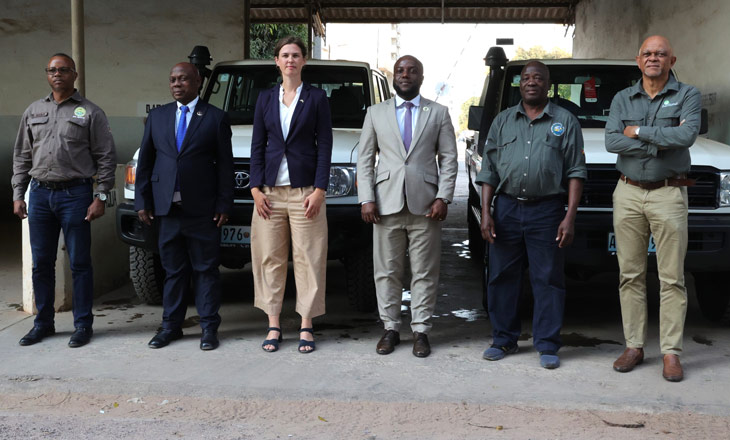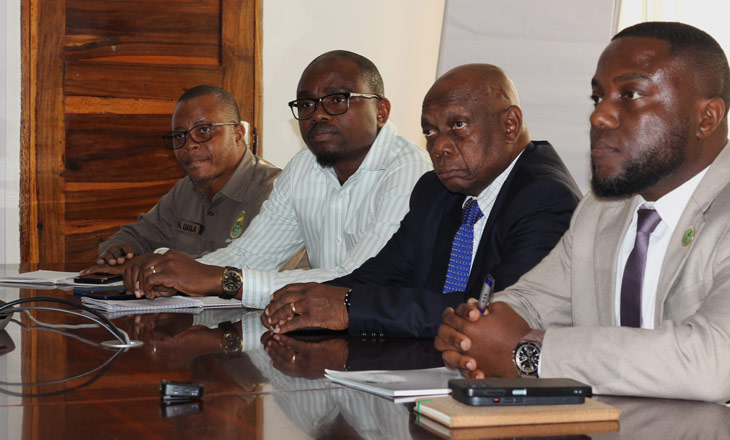On August 27, 2024, the Foundation for the Conservation of Biodiversity (BIOFUND), in partnership with the National Administration of Conservation Areas (ANAC) and with funding from the Swedish International Development Cooperation Agency (SIDA-SWEDEN), delivered two new vehicles under the Biodiversity Conservation Programme (2023–2027), coordinated by BIOFUND. The vehicles are destined for the Pomene National Reserve (PNR) and the Maputo Environmental Protection Area (APA Maputo), both priority sites within the programme.
Published at 30/08/2024
New Fleet Strengthens Biodiversity Protection: BIOFUND, ANAC and Sweden in Action
Samiro Magane, Programme Coordinator, highlighted the importance of this delivery in the context of BIOFUND and ANAC’s joint efforts to strengthen the operational capacity of Mozambique’s Conservation Areas. “These vehicles are a concrete example of how we are transforming financial resources into practical actions that directly support the protection of the country’s vital ecosystems. Our partnership with ANAC is essential to ensure that Conservation Areas have the necessary tools to face environmental challenges effectively and sustainably,” stated Magane.
Frida Rodhe, representative of the Embassy of Sweden, emphasised that this initiative goes beyond logistical reinforcement, representing the Swedish Government’s continued commitment to biodiversity conservation and climate change mitigation in Mozambique. “The Government of Sweden recognises that biodiversity conservation is intrinsically linked to climate issues and that strengthening operational capacities in protected areas is essential to address both challenges in an integrated manner. These resources are vital to ensure that field teams can carry out their work efficiently, protecting critical ecosystems and contributing to the resilience of local communities in the face of climate change,” explained Rodhe.
Pejul Calenga, Director General of ANAC, praised the vehicle delivery as a significant step forward in strengthening conservation capacities. “With these resources and initiatives, Conservation Areas will be better equipped to face current conservation challenges, ensure sustainable biodiversity management, and bring meaningful benefits to local communities,” said Calenga.
Calenga also noted that the support provided through the Biodiversity Conservation Programme aims to assist the restructuring of the National Network of Conservation Areas, the operationalisation of the Malhazine Ecological Park, and the reclassification of the Lake Niassa Partial Reserve.
The Director General concluded by stating that, with this support, a significant improvement is expected in biodiversity conservation and protection operations in the beneficiary areas, increasing the effectiveness of patrols and enabling faster emergency responses, thereby strengthening enforcement efforts.







